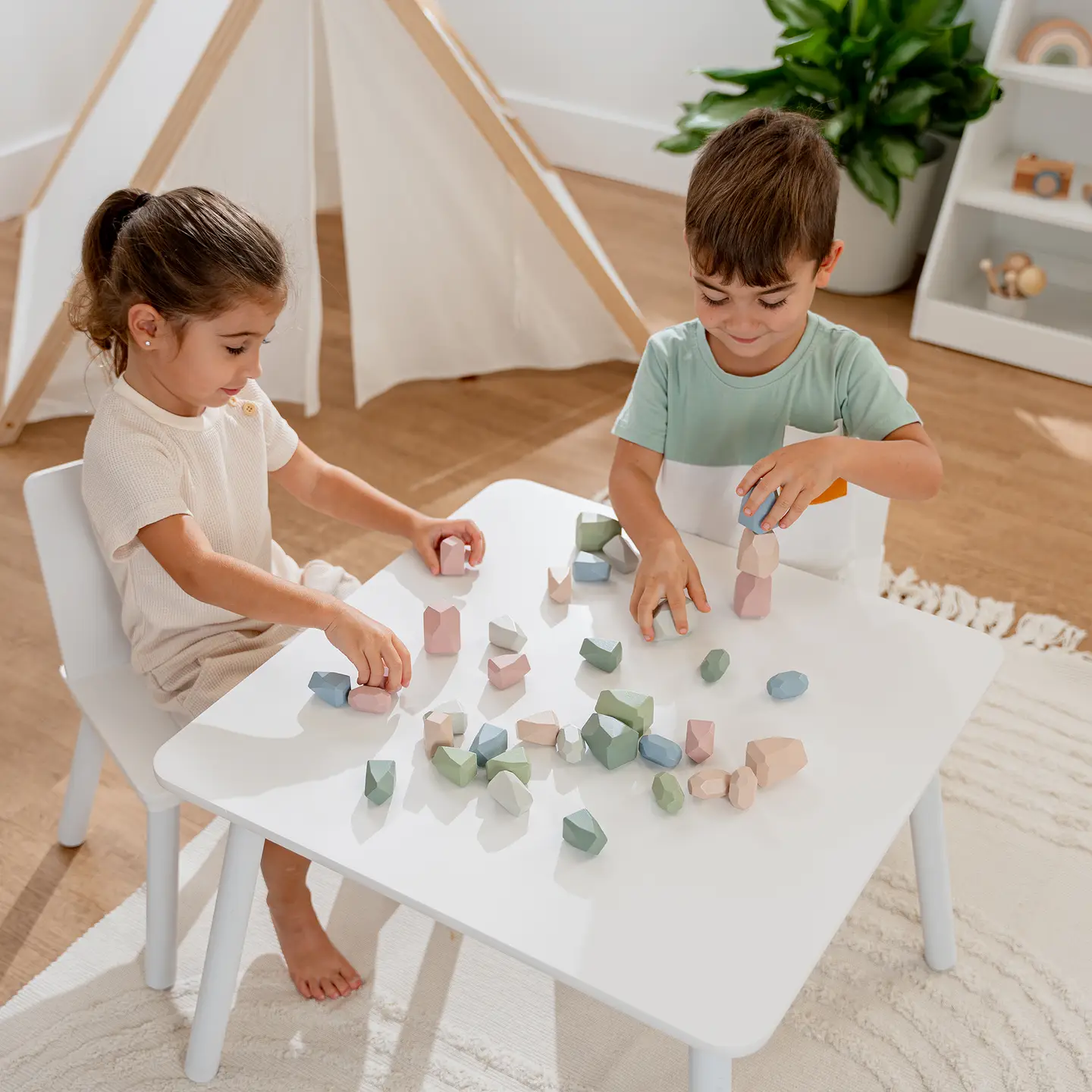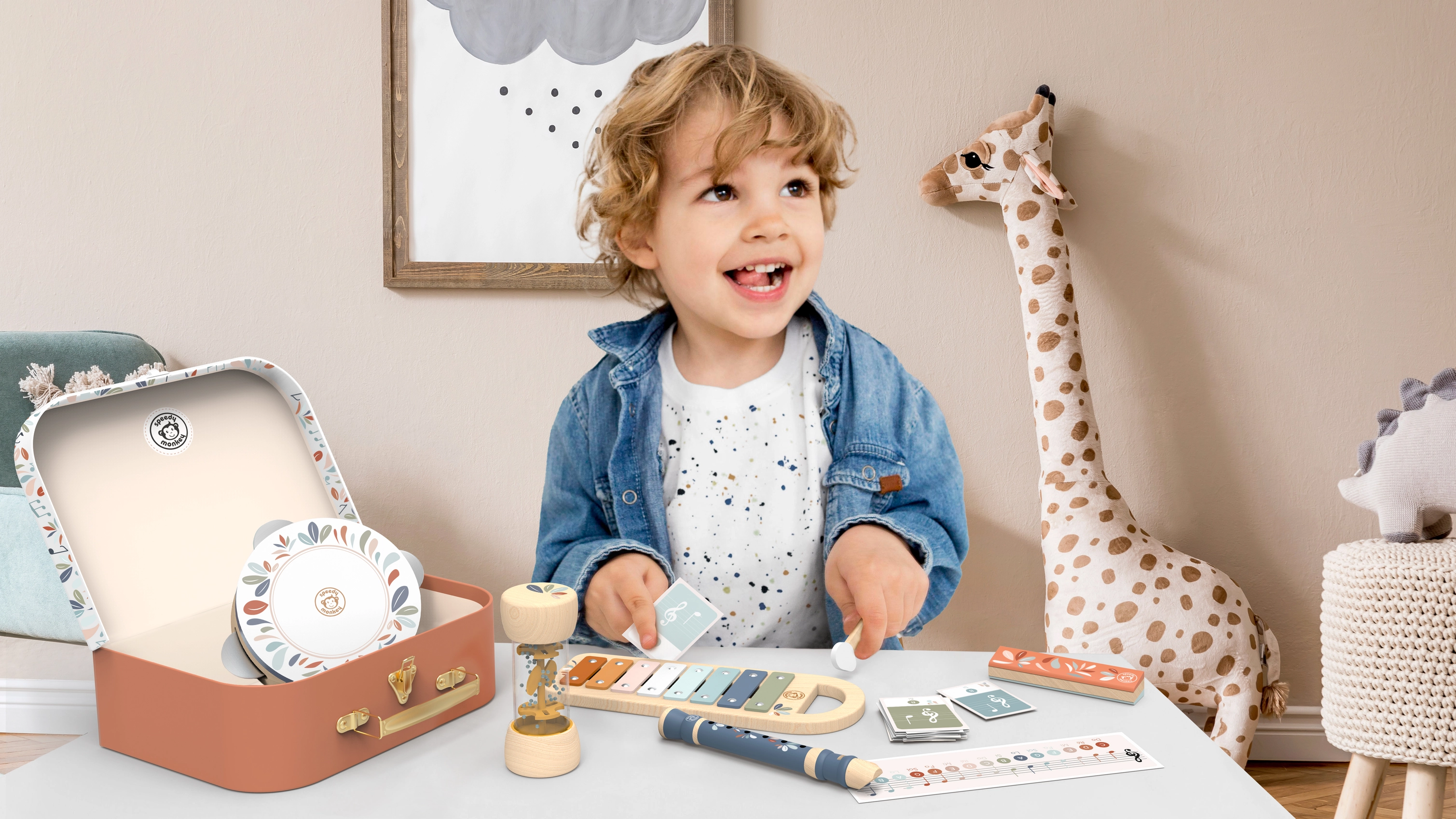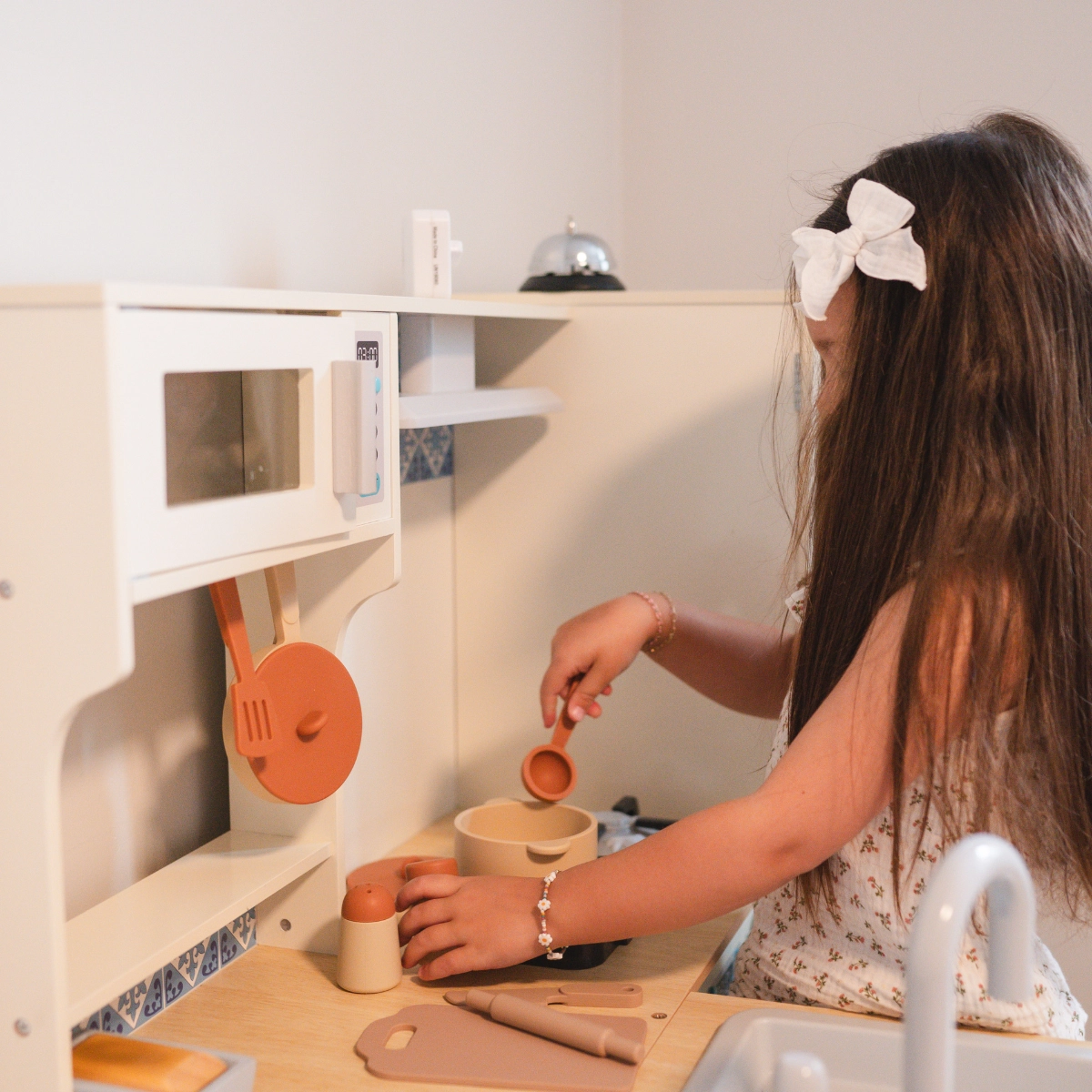Pretend Play with Toddlers
- LeCha Brown

- Feb 24
- 5 min read

As our toddlers grow, they explore the world around them in an exciting and unique way. One of the most important developmental stages during the ages of 24-48 months is pretend play, also known as imaginative play or symbolic play. This is when our energetic toddlers begin using their imagination to create scenarios and act out roles, which is not only fun but also a crucial part of their growth. Let's dive into how pretend play supports a toddler's development and explore some creative activities, toys, and tips that can help you foster this growth at home.
The Developmental Benefits of Pretend Play
Pretend play is a powerful tool for fostering a wide range of skills in toddlers. It promotes development in the following key areas:
1. Gross Motor Development

Pretend play encourages toddlers to engage in physical activities, which are great for their gross motor development. Whether they are pretending to be a superhero, a dancer, or an animal, toddlers move, jump, run, and climb, all of which help them build strength and coordination. Role-playing activities like playing "house" or mimicking a pet require large body movements, helping to enhance balance and coordination.
Activities at home:
Pretend to be animals and act out how different animals move (e.g., hop like a bunny, waddle like a penguin).
Create obstacle courses that involve crawling, jumping, and balancing while acting out different roles (e.g., firefighter rescuing a kitten).
2. Fine Motor Development

Incorporating pretend play with objects that require manipulation of small items, such as dolls, blocks, or kitchen utensils, helps to improve fine motor skills. Holding and using small items, stacking, and assembling objects all strengthen hand-eye coordination, finger dexterity, and hand strength.
Activities at home:
Pretend to cook with toy pots, pans, and utensils to practice grasping and stirring.
Pretend to take care of a baby doll by dressing it, feeding it with a toy bottle, and changing its clothes. These activities help improve the small muscle control needed for writing and drawing later on.
3. Social-Emotional Development

Pretend play is also a fantastic way for our littles to learn social and emotional skills. By mimicking our behaviors and acting out different roles, they will learn how to interact with others, express their emotions, and manage social situations. They start to understand empathy by putting themselves in other people's shoes, and they can work on developing self-regulation skills.
Activities at home:
Play pretend games that involve turn-taking, such as pretending to run a store or hosting a tea party.
Act out a scenario where a toddler helps a friend or family member with a problem, teaching them cooperation, sharing, and problem-solving skills.
4. Language Development

As our toddlers engage in pretend play, they often use more complex language and develop their vocabulary. They practice new words, form simple sentences, and explore the concept of cause and effect through their play scenarios. Engaging in conversation while pretending helps them with both expressive and receptive language skills.
Activities at home:
Set up pretend "shops" or "restaurants" and encourage toddlers to use words like "please," "thank you," and "may I help you?"
Pretend to have a conversation on the phone with a doll or stuffed animal, encouraging your child to speak and listen.
5. Sensory Development

Pretend play also engages their senses, whether they are smelling pretend food, touching different textures, or creating sounds during a make-believe activity. By experiencing these sensory activities, they learn to make connections between their senses and the world around them.
Activities at home:
Set up a pretend "bakery" with playdough or clay to knead, roll, and shape.
Create a "sensory bin" with rice, beans, dirt, or sand and include small toys for your child to explore while pretending they are a gardener or construction worker.
6. Cognitive Development

Through pretend play, our toddlers are able to think creatively, solve problems, and understand the concept of "what if" situations. Their cognitive skills are engaged as they work to simulate real-world activities, allowing them to make connections between their play and their everyday experiences.
Activities at home:
Act out a storyline together with toys, creating different challenges for the characters to overcome.
Use props, such as a toy phone, to imitate real-life activities like calling a friend or ordering food, which enhances problem-solving abilities.
More Pretend Play Activities to Try at Home
Now that we understand how pretend play promotes development, let’s look a little more in depth at some of these activities you can try with your little one at home.
Pretend Play Kitchen: Set up a pretend kitchen area with toy pots, pans, utensils, and pretend food. This is great for developing fine motor skills, language development (naming ingredients and food), and social-emotional growth (playing chef and customer).
Pretend Store: Turn a corner of the living room into a pretend store with play money, toys, and cardboard boxes. This helps with language development (talking about prices, items), social skills (taking turns as the cashier or customer), and cognitive skills (learning to identify and categorize objects).
Superhero Play: Let your little dress up as their favorite superhero and use their imagination to save the day. This helps with gross motor skills (running, jumping, climbing) and social-emotional skills (role-playing bravery, teamwork).
Dress-Up Play: Provide a box of old clothes or costumes for them to wear while acting out different roles (doctor, teacher, firefighter). This boosts creativity, cognitive thinking, and social-emotional awareness.
Best Toys for Pretend Play
Choosing the right toys can make all the difference in enhancing pretend play. Here are some of the best options for your little one during this stage:
Dolls and Action Figures: These will allow them to explore caregiving roles (feeding, dressing, and nurturing) while building emotional and social skills.
Play Kitchens and Food Sets: These toys help our toddlers develop fine motor skills and learn about everyday activities like cooking, cleaning, and organizing.
Building Blocks and Construction Toys: These promote cognitive development by encouraging problem-solving, planning, and spatial awareness.
Musical Instruments: Simple instruments like tambourines, xylophones, or maracas foster sensory exploration and rhythm skills.
Playsets (e.g., doctors, kitchens, farms): These toys provide endless opportunities for imaginative scenarios and role-playing activities, helping them engage in social play with their peers.
Tips for Parents to Foster Pretend Play
As their parent or caregiver, there are several things you can do to encourage pretend play at home:
Set Up Pretend Play Spaces: Create a designated area for pretend play in your home. Whether it’s a play kitchen, a dress-up corner, or a little puppet theater, having a space for creativity can encourage regular engagement in imaginative play.
Provide a Variety of Props: Give them different props to act out various scenarios—old clothes, cardboard boxes, toy animals, or various household objects.
Join in the Fun: Participate in pretend play with your little one. Take on different roles, make up stories, and engage in conversations. Not only will this make their day, but it will work to strengthen your bond while modeling new ways to play.
Give Plenty of Time: Pretend play thrives when there is no rush. Provide your little one with unstructured time to immerse themselves in their imaginative world.
Encourage Storytelling: Encourage them to tell stories or act out simple scenarios. You can help them by asking open-ended questions like, "What happens next?" or "What will your character do now?"
As you can see, pretend play is not just about fun and games—it’s a vital tool for your our little ones development across multiple domains. Whether they are pretending to cook a meal, act as a doctor, or save the day as a superhero, they are learning, growing, and developing important skills that will help them later in life. By providing a variety of activities, toys, and opportunities for imaginative play, you can support their cognitive, emotional, and physical growth while enjoying some of the best moments together.






Comments